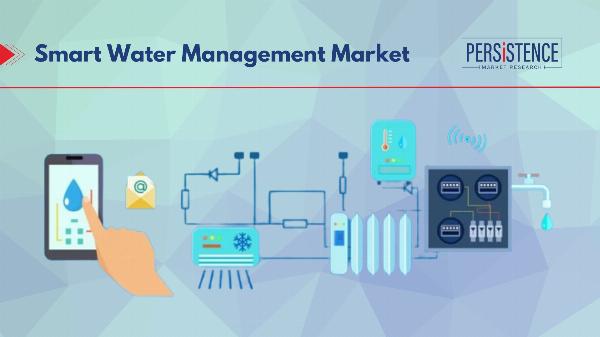 Social Media Content Packs – Stay Active Without Lifting a Finger!
Social Media Content Packs – Stay Active Without Lifting a Finger!
U.S. Employment Screening Services Market Strategies for Risk Mitigation
Written by Ajaykumar Patil » Updated on: June 17th, 2025

In today's fast-paced and highly competitive job market, businesses must take every precaution to ensure they hire the best candidates while mitigating risks associated with recruitment. Employment screening services play a critical role in this process by verifying candidate backgrounds, ensuring compliance with regulations, and safeguarding company reputation. According to Persistence Market Research, the U.S. employment screening services market is estimated to reach a value of US$ 2.3 billion in 2025 and is projected to grow at a CAGR of 6.7%, reaching US$ 3.7 billion by 2032. This growth highlights the increasing reliance on screening services as a fundamental component of workforce management. In this blog, we explore key strategies that organizations can implement to mitigate risks through effective employment screening services.
Understanding Employment Screening Services
Employment screening services encompass a wide range of background verification processes, including criminal history checks, employment history validation, credit checks, drug testing, and social media screening. These services help employers make informed hiring decisions and reduce potential risks associated with negligent hiring, workplace violence, and financial fraud.
Key Strategies for Risk Mitigation in Employment Screening
1. Implementing Comprehensive Background Checks
A thorough background check is essential for identifying potential red flags in a candidate's history. Employers should conduct:
• Criminal record checks to uncover past convictions that may pose security threats.
• Employment history verification to confirm the accuracy of past job roles and experiences.
• Educational background verification to ensure candidates possess the necessary qualifications.
• Reference checks to gain insights into a candidate’s work ethic and reliability.
By leveraging a robust background check process, companies can significantly reduce the risk of hiring employees with falsified credentials or concerning histories.
2. Compliance with Federal and State Regulations
Employment screening practices must align with legal frameworks, including:
• Fair Credit Reporting Act (FCRA): Ensuring compliance with FCRA regulations is critical when conducting background checks through third-party agencies.
• Equal Employment Opportunity Commission (EEOC) guidelines: Employers must prevent discrimination in hiring practices based on race, gender, or criminal history.
• State-specific regulations: Some states have stricter laws on the use of criminal records in hiring decisions, requiring employers to stay informed about local legal requirements.
Non-compliance with these laws can lead to legal penalties, lawsuits, and reputational damage.
3. Utilizing AI and Automation in Screening Processes
The integration of artificial intelligence (AI) and automation in employment screening has significantly improved efficiency and accuracy. AI-driven solutions can:
• Analyze large datasets quickly, reducing human error in background checks.
• Identify patterns in candidate behavior, providing predictive insights into potential risks.
• Automate verification processes, ensuring consistency and compliance in screening procedures.
By leveraging AI, companies can expedite their hiring processes while maintaining high screening standards.
4. Conducting Continuous Employee Screening
While pre-employment screening is crucial, companies should also implement continuous screening programs for existing employees. This ensures that any new risk factors, such as criminal activity or financial distress, are promptly identified. Continuous monitoring is especially important for industries with high-security requirements, such as finance, healthcare, and law enforcement.
5. Enhancing Drug and Alcohol Testing Programs
Substance abuse in the workplace can lead to decreased productivity, safety hazards, and legal liabilities. Employers should:
• Implement pre-employment drug testing to ensure candidates meet workplace safety standards.
• Establish random drug testing policies to deter substance abuse among employees.
• Offer rehabilitation programs for employees struggling with substance abuse, promoting a healthier work environment.
By enforcing strict drug and alcohol screening policies, businesses can minimize workplace risks and improve overall employee performance.
6. Incorporating Social Media Screening
With the rise of digital footprints, employers are increasingly incorporating social media screening as part of their hiring process. Monitoring a candidate’s social media activity can provide insights into their:
• Professional conduct and communication skills.
• Ethical standards and alignment with company values.
• Potential red flags, such as discriminatory or violent behavior.
However, employers must ensure compliance with privacy laws and avoid bias when interpreting social media findings.
7. Partnering with Reliable Screening Providers
Choosing a reputable employment screening provider is crucial for obtaining accurate and legally compliant results. Key factors to consider when selecting a provider include:
• Industry experience and expertise.
• Adherence to compliance standards, including FCRA and EEOC guidelines.
• Use of advanced technology for accurate and efficient screening.
• Strong data security measures to protect sensitive candidate information.
By collaborating with a trusted screening partner, organizations can enhance their hiring process while reducing risks.
Future Trends in the U.S. Employment Screening Services Market
As the employment screening market continues to grow, several emerging trends will shape its future:
1. Blockchain Technology for Secure Background Verification
Blockchain offers a decentralized and tamper-proof method for storing background check data. This technology enhances transparency, reduces fraud, and speeds up verification processes.
2. Biometric Identity Verification
Fingerprint scanning, facial recognition, and other biometric authentication methods are becoming increasingly popular in employment screening. These technologies enhance security and prevent identity fraud.
3. Expansion of Global Screening Capabilities
With the rise of remote work, companies are hiring talent from across the globe. Employment screening services are evolving to offer global verification solutions, ensuring compliance with international hiring standards.
4. Ethical AI in Screening
As AI plays a larger role in screening, there is a growing emphasis on ethical AI practices to prevent biased decision-making and ensure fair hiring processes.
Conclusion
The U.S. employment screening services market is witnessing significant growth, driven by the need for risk mitigation and regulatory compliance. By implementing comprehensive background checks, leveraging AI and automation, ensuring legal compliance, and adopting innovative screening techniques, businesses can enhance their hiring processes and safeguard workplace integrity.
As technological advancements continue to shape the industry, companies that prioritize ethical and efficient employment screening strategies will be better positioned for long-term success. Investing in reliable screening solutions is not just a precautionary measure—it is a strategic necessity in today’s evolving job market.
Note: IndiBlogHub features both user-submitted and editorial content. We do not verify third-party contributions. Read our Disclaimer and Privacy Policyfor details.
Copyright © 2019-2025 IndiBlogHub.com. All rights reserved. Hosted on DigitalOcean for fast, reliable performance.

















